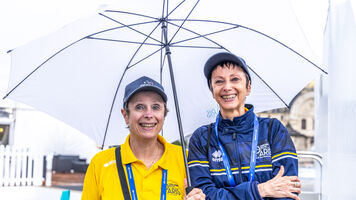Behind the scenes: Organising the World Games
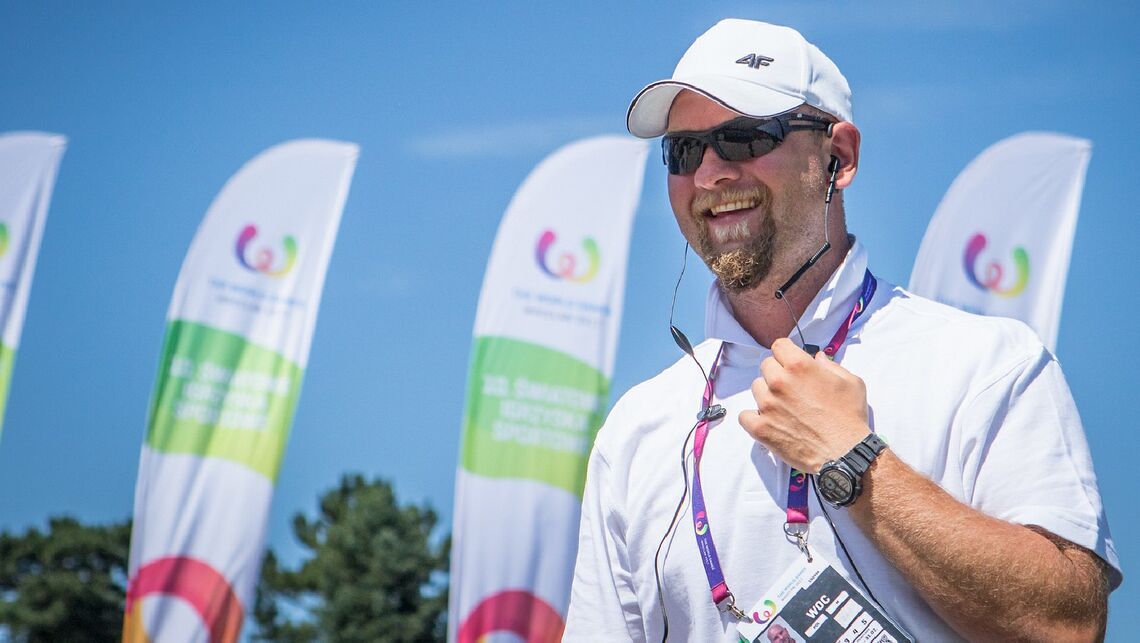
The 2017 World Games featured three bowstyles, recurve, barebow and compound, shooting two disciplines, field and target archery, from 23 to 30 July in Wroclaw, Poland.
A challenging logistical endeavour, delivered exceptionally by a team of staff and volunteers who – for the most part – came from inside the sport. Here’s a quick look at just a few of the individuals that made the 2017 World Games a success.
Venue Manager
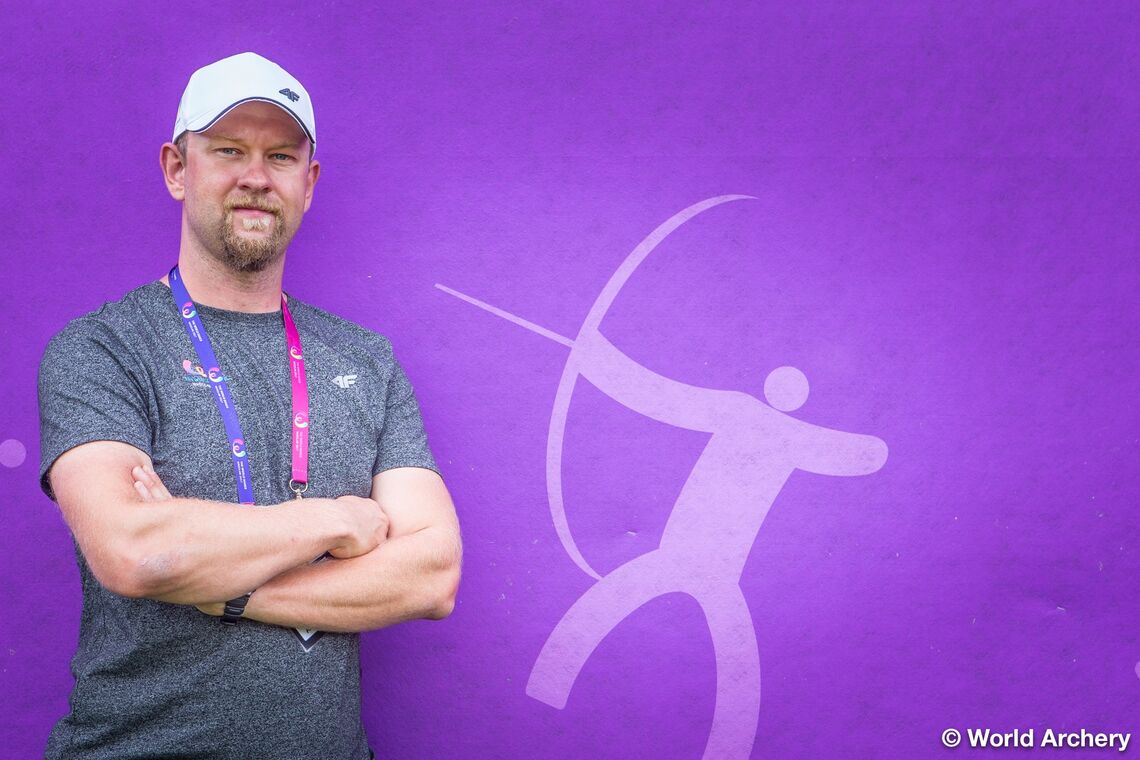
Born and raised in Legnica in the west of Poland, Maciej Laba was the man driving archery at the 2017 World Games. A serial organiser of large archery events, he previously led the crew that organised the Hyundai Archery World Cup stage in Wroclaw from 2013 to 2015.
“From the European Grand Prix in 2008, we moved into the 2011 Youth World Archery Championships. It was our second event and it was one of the biggest in World Archery’s history with 563 youth archers from 56 countries,” said Maciej. “Then, we continued with the World Cups in 2013, 2014 and 2015, and now the World Games.”
Smaller than most events, with only 96 total archers competing over the barebow, recurve and compound tournaments, three times as many paid staff and volunteers were needed on venue to keep things running.
“What I like about my job is that is demanding. Our hard work was appreciated by the participants and we helped to promote the sport in Poland, which I think is needed,” he said.
The highlight of Maciej’s event?
“My favourite part of the World Games were the field finals because of the shooting positions, having the spectators so close to the athletes and making them part of the whole show,” he said.
“I never saw something like that before and It was good, it was fun, too.”
“Everything we did was according to plan, except for the weather [laughs]. I’m very satisfied with everything.”
Volunteer Lead
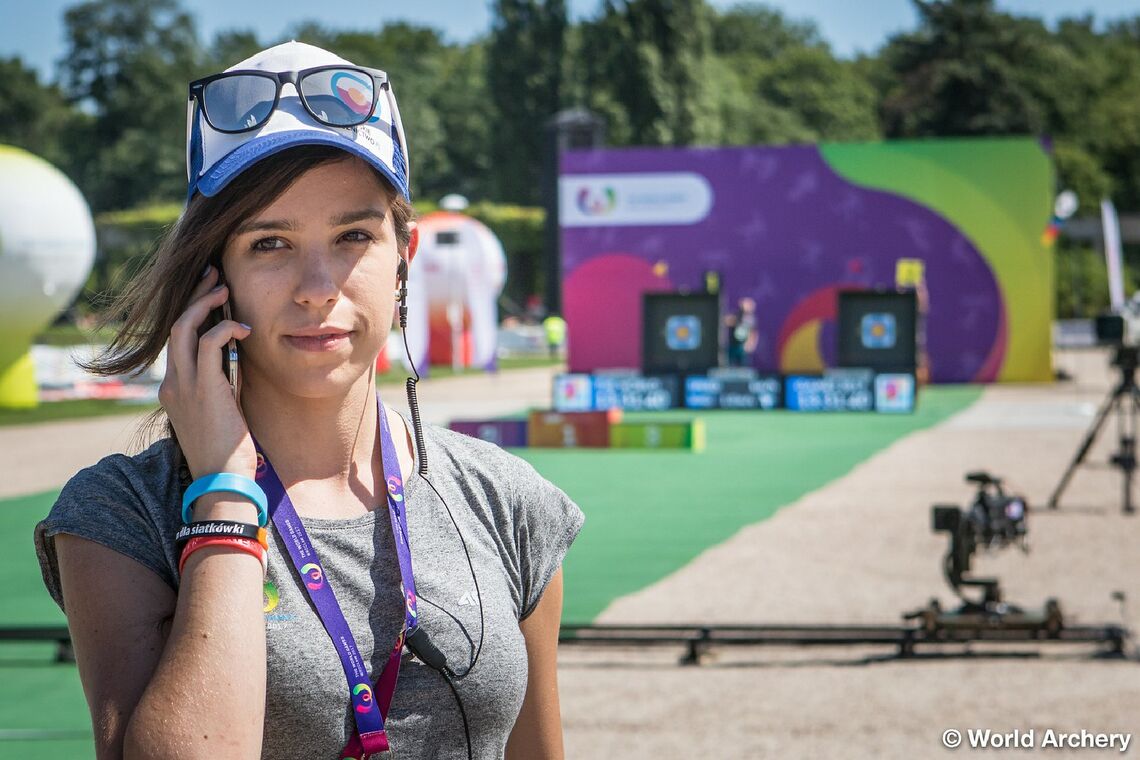
An accountant in real life but passionate about archery, Karolina Michalewska coordinated the (frankly amazing) sport volunteers that worked non-stop prior, during and after the World Games to make the archery a success.
“We had two different sources of volunteers. One, from the organising committee of the World Games and another one, from our archery team in Legnica,” Karolina explained.
“It was easy with the latter group because they are all archers, they knew the sport, how it works, the rules and how to set up the field.”
The challenge, Karolina said, was keeping motivation high:
“We had long shifts and a lot of work to do to make sure that all three disciplines in archery had all their practice, qualification and final venues on point. We did all sort of jobs and we tried to do it with our best attitude all the time because we wanted the athletes to have good competition.”
The majority of the World Games archery schedule took place on the field archery venue but, over three days at the end, the crew moved first to the compound qualification field and then, overnight, to the finals arena.
“Although this competition was different from the previous World Cup stages were I worked in Wroclaw, too, in terms of participants, it’s still archery and the same nice atmosphere around it. I think I have shot once in my life and I liked it a lot,” said Karolina.
“My plan is to be there at the Europeans next year in Legnica. Hopefully, working with the volunteers again.”
Field of Play Lead
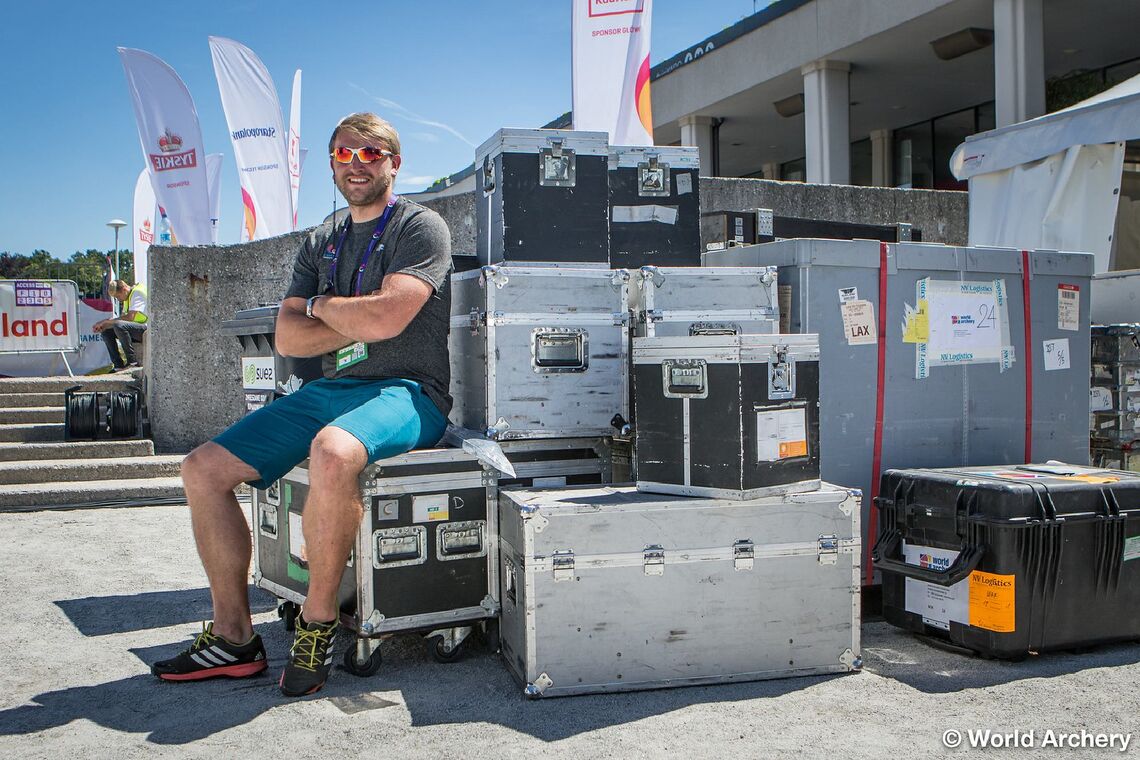
“I made sure everything was ready to go on time and as requested for each stage of the competition,” said Konrad Przesmycki. And that he did. When a freak storm blasted through the city early in the week, knocking down trees and causing a bit of chaos, Konrad’s field course remained in perfect condition.
An archer since 2003 and national medallist in Poland, Konrad works as an archery coach and competition organiser.
“Archery is my life, so being able to work at the World Games was a very nice experience for me. I worked at the World Cup in Poland before, but this particular event was different,” said Konrad. “I had to be creative, proactive and positive to coordinate a group of people, including volunteers, to have the field ready.”
“Having the competition live on streaming all week made it even more difficult because things really needed to be perfect as any mistake would be shown to a big audience and we didn’t want this. We wanted to be good, to make a difference and I think we did.”
Konrad said that setting his field course was challenging, but enjoyable, and the positive reviews from those that shot the event made him proud.
“I love what I do.”
International Volunteer
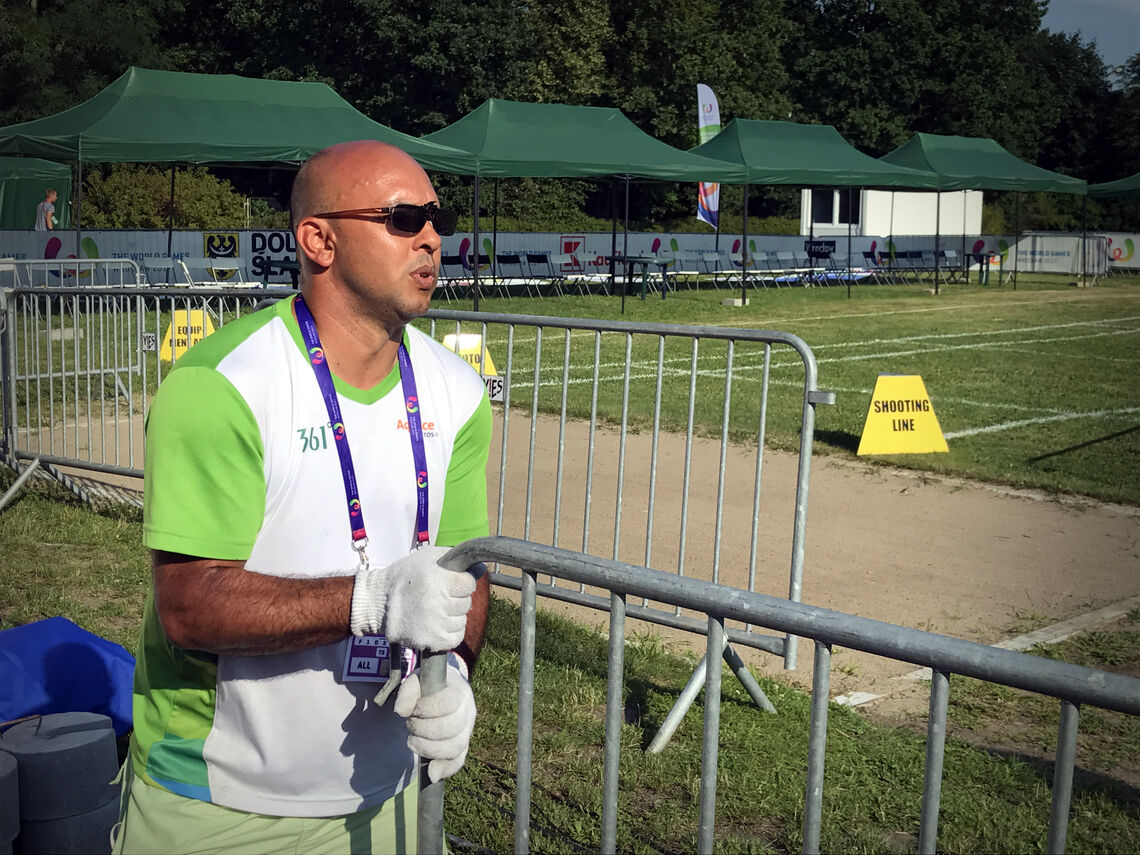
Before moving to Germany to do a masters in Olympic Studies, Ricardo Pantoja worked at the 2016 Olympic Games in his home city of Rio. He was in charge of some of the venues in the Olympic Park.
In Wroclaw, during the World Games, he was assistant to the Venue Manager, and anyone else who needed help.
“I also worked at the Brazilian Olympic Committee and have some experience in archery, so when I knew archery was going to be at the World Games, I wanted to be part of it, to help and join the team,” said Ricardo.
“It’s been nice to be part of another multisport event and work in this sport, especially. It is the sport I love and was happy to see field and compound target happening at the same time.”
Although not on the scale of the Olympics yet, Ricardo said what was most important in Wroclaw was how the city welcomed the event.
“Everyone is friendly, relaxed and hardworking. It was really enjoyable to watch how people integrated to make things perfect for athletes, staff and spectators,” he added.
The archery competitions at the 2017 World Games ran 23-30 July in Wroclaw, Poland.


